Images appear to show Russia dismantling military equipment in Syria
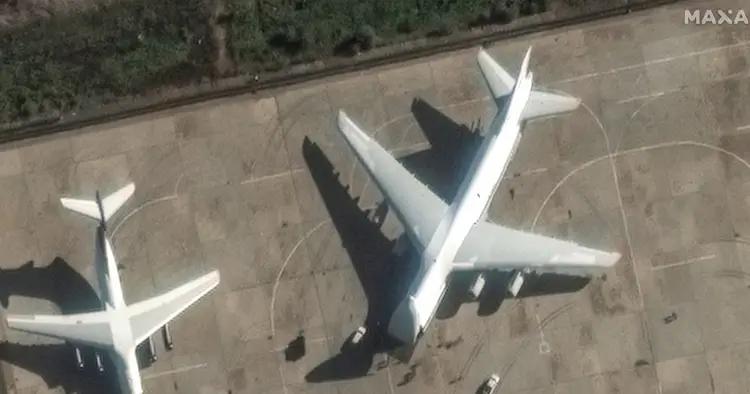
Recent satellite images seem to indicate that Russian troops are in the process of packing and taking apart their military gear at a major base in Syria. This development raises the possibility that they are getting ready to pull out, especially following the ousting of former president Bashar Al-Assad by Syrian rebels last week, with whom Russia has been allied.
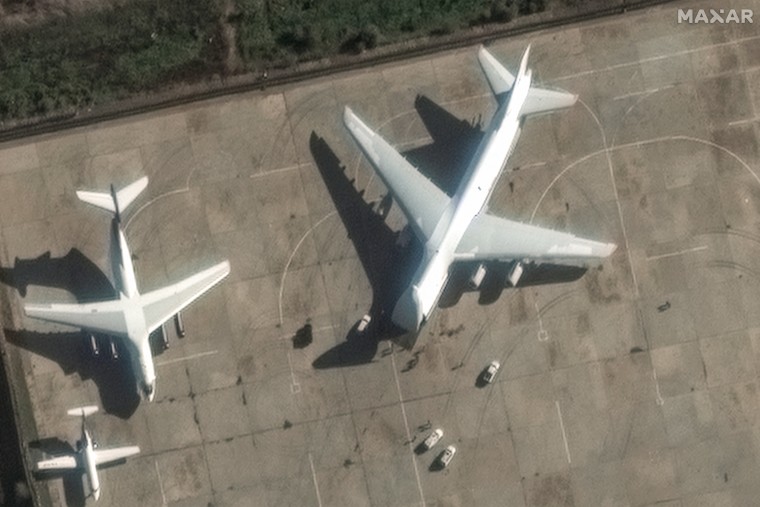
The ultimate agreement between Russia and Syria's emerging government is still uncertain, but the recent actions highlight the significant changes in the power structure of the country after Assad's regime. Moscow is facing the challenge of losing an important ally and the possibility of diminishing its influence in the Middle East.
Maxar Technologies, an American defense company, shared images on Friday that reveal transportation activities at Russia's Hmeimim airbase and Tartus naval base, which are situated south of Latakia along Syria's Mediterranean coastline.
At Hmeimim, observers noted two An-124 cargo planes stationed on the tarmac with their nose sections elevated, indicating they were prepared to load cargo. In the vicinity, a Ka-52 attack helicopter was spotted being taken apart, probably in anticipation of being moved.
Additional groups, such as Russian military trucks, seem to be making their way toward the airbase.
Video confirmed by NBC News showed a Russian convoy moving north toward Homs on the highway that links Damascus in the south to Aleppo in the north. The individual recording the footage remarked, "May God never bring you back," pointing out that this was the second time he had witnessed a convoy like this.
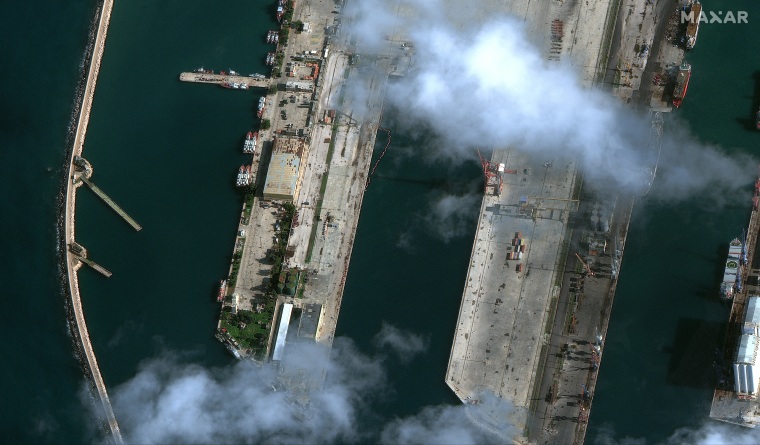
Another clip features Russian military vehicles moving through Jableh, close to the Hmeimim airbase.
The Syrian Observatory for Human Rights, a monitoring organization located in the UK, has also reported that Russian troops are pulling back from the Hassia region, which is south of Homs, and intend to regroup later at Hmeimim.
Similar troop movements by Russian forces have been noted throughout the country.
In another confirmed video, Russian military trucks were seen moving through an area that looks like Syria, while locals waved their shoes at them. Additionally, a different video shared by the well-known Russian military-focused Telegram channel "Military Informer" allegedly depicted a column of Russian troops passing through regions held by Kurdish forces in Syria.
The decline of Assad has struck a major setback for Russia, which is currently involved in a lengthy ground conflict in Ukraine.
Russia's military operations in Syria play a key role in its approach to the Middle East. The bases at Hmeimim and Tartus are crucial for extending its reach throughout the region and protecting Moscow's interests in the Mediterranean Sea.
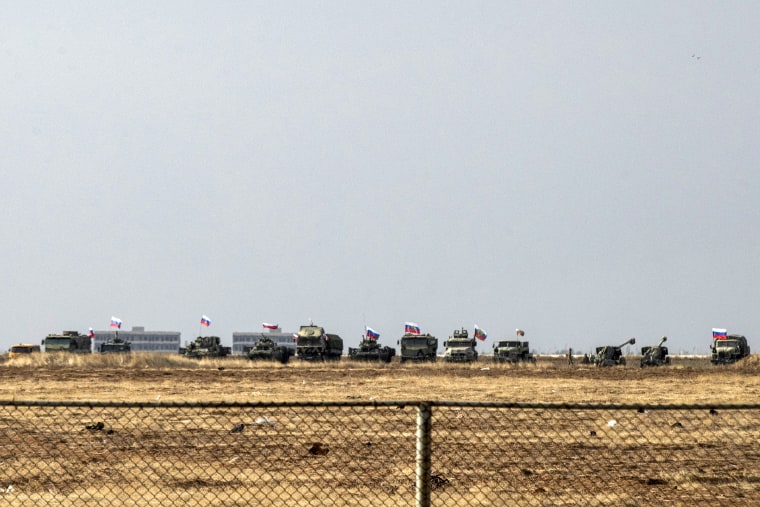
When Russia got involved in the Syrian Civil War in 2015, its assistance significantly tipped the scales in favor of Assad. However, this time, Moscow hasn't stopped his potential downfall, and if it were to make a substantial withdrawal from Syria, it would represent a significant setback.
Kremlin spokesperson Dmitry Peskov downplayed the situation last week, stating that although Russia had previously invested considerable effort in stabilizing Syria, its main focus now is on the conflict in Ukraine.
He mentioned that Moscow is currently talking to the new Syrian government to discuss matters concerning its military presence and the safety of Russian citizens and diplomats in the region.
"As you all know, we are in touch with the individuals who are presently managing the situation in Syria," Peskov informed reporters, as reported by Reuters.
In a significant change, Russian state media has started calling the Syrian opposition "rebels" instead of "terrorists." This indicates Moscow's desire to establish diplomatic relations with the new leadership in Syria while aiming to preserve its important military presence in the Mediterranean region.
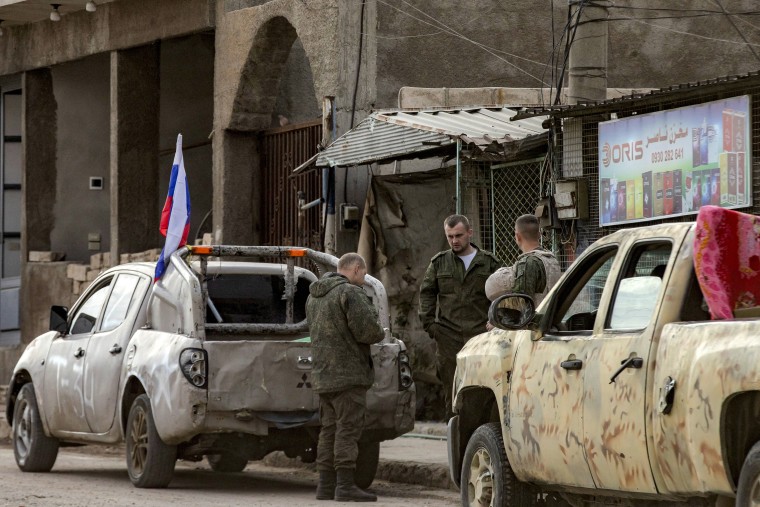
Nonetheless, there are no signs that a particular deal has been finalized to ensure Russia's ongoing presence.
At the same time, Syria's representative to the United Nations submitted two identical letters to both the U.N. and the U.N. Security Council on Saturday. These letters included an official grievance in response to Israeli forces entering Syrian territory last week and carrying out extensive airstrikes in the region.
Syria has reiterated its call for the United Nations and the Security Council to fulfill their duties by taking strong and prompt action to stop Israel from continuing its attacks on Syrian land. In a letter, Syria urged that these violations be prevented from happening again and that Israel withdraw from the regions it has invaded in recent days.
Last week, Israeli Defense Minister Israel Katz announced that he instructed the military to create a "sterile defense zone" in southern Syria. This move comes as Israeli forces take over the demilitarized buffer area monitored by the U.N., which was originally set up following a ceasefire agreement in 1974.
Israel claims that its airstrikes and ground operations are focused on keeping Assad's stockpiles of rockets and chemical weapons out of reach of extremists who might pose a danger to its borders or citizens.
However, its progress has caused concern as the global community is already uneasy about the potential for more instability while Syria is trying to move away from 53 years of Assad's leadership.
Freddie Clayton is an independent writer who works in journalism and is located in London.

























































